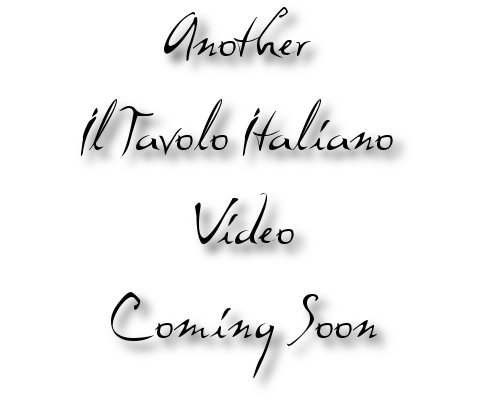Italian Pronunciation - Lesson 3
Diphthongs and other oddities
After this class you should;be able to correctly pronounce Italian words containing theses diphthongs and/or other conditions.
GrammarItalian Diphthongs
Other Unique Italian Consonant Uses
| |||||||

|
|
||||||
| |||||||
|
|
|||||||
|
|
|||||||
|
|
|||||||
You can learn more about Italian diphthongs and other unique uncharacteristic of the Italian language on these pages of the following books.
Pages 2 - 4 (page #'s may vary as I have an older edition) of "Ciao" by Carla Federici & Carla Larese Riga, copyright 1986.
If you do not own these books, don't worry, it is not mandatory that you do unless you were instructed to buy them at the beginning of the class. However, they can be very useful in a lot of ways and if you would like to know more about these books and where to buy them, simply go to our online bookstore or quicker yet, just click on the appropriate book below.
Did you know? A bit of Italian Trivia
" The history of the Italian language is quite complex but the modern standard of the language was largely shaped by relatively recent events. The earliest surviving texts which can definitely be called Italian (as opposed to its predecessor Vulgar Latin) are legal formulae from the region of Benevento dating from 960-963.During the 14th century the Tuscan dialect began to predominate, because of the central position of Tuscany in Italy, and because of the aggressive commerce of its most important city, Florence. In fact, Florentine culture produced the three literary artists who best summarized Italian thought and feeling of the late Middle Ages and early Renaissance: Petrarca, Boccaccio and, specially, Dante Alighieri. Dante was the one who mixed southern Italian languages, especially Sicilian, with his native Tuscan ("supposed" to be derived from Etruscan and Oscan) in his epic poems known collectively as the Commedia, to which Giovanni Boccaccio later affixed the title Divina...."
This information about Italian obtained from ITALIANLANGUAGE
Have you heard? - Some good Italian Music
A sweet song sung by Laura Pausini. Relax, listen to little audio work of art a few times to just relax and then read along with it and check out the pronunciation!|
great songs are available on ---> Here are the song's lyrics, read along while you listen to Scrivimi and listen to his pronunciation of the words you see! |
blog comments powered by Disqus

